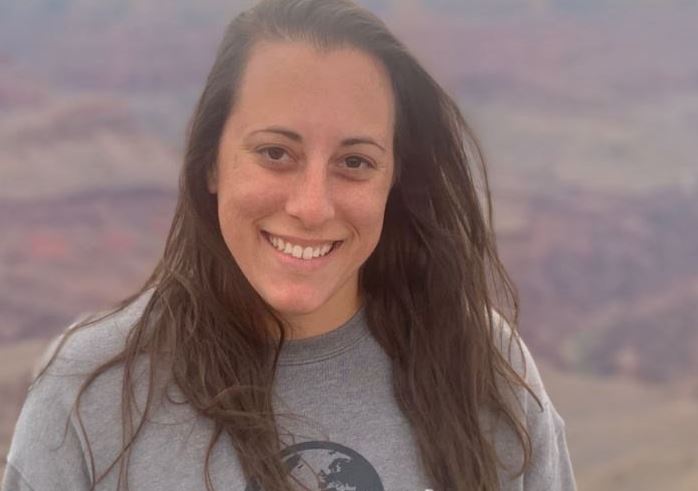
Robyn Segal was living a life of service. In 2016, she was volunteering in Rwanda at a youth village supporting genocide survivors and vulnerable youth when she learned she likely had breast cancer. She was 25 years old. Robyn returned to the U.S., where tests confirmed a diagnosis of stage 2 triple negative breast cancer. Her treatment included chemotherapy, a lumpectomy and radiation therapy. This is her story in her own words.
Honestly, it was a bit of relief to finally have a diagnosis after I arrived back home after leaving Rwanda. I was in logistics mode and I kind of took that approach a lot during cancer treatment, a lot of survival mode and not really processing anything as it was happening. I’m a rational person, and I think I sort of shut off the emotional side of me a little bit. I focused on what my doctors were telling me and what I had to do. “I’ve got to do X, Y and Z and get through this, and it’s all temporary and it’s all fine.” I handled the treatment side of things relatively well, all things considered.
But from an emotional standpoint, after treatment ended is really when the emotional stuff came for me. I just naively assumed everything was going to work out well and, that after 10 months of treatment, I’d go back to normal. I was 25. I was naïve. There is no normal when it comes to cancer.
I felt stagnant during treatment, but once treatment was done and I tried to move forward in my life, the isolation and mental health side of things really kicked in, the physical side of things, too. The first year-and-a-half after treatment ended were the hardest. I had three to four doctor appointments every week. I had random symptoms, aches and pains and chronic headaches that affected my ability to work. I would constantly think “Is this cancer? Is this normal? Is this the new normal?”
It was a roller coaster. I didn’t trust my own body and I didn’t trust myself to know my own body. I felt like no one my age understood what I had been through or what I was continuing to go through, which felt very isolating. Figuring out life after treatment was hard. The mental health aspect of cancer and treatment was entirely unexpected for me. I’d never struggled with mental health prior to breast cancer and survivorship really tested me. I struggled with every aspect of it. I did not feel comfortable in my own skin.
Prior to cancer, my whole life was spent living abroad and traveling. I was doing everything I wanted to do, I was living a life of service and doing meaningful work. Cancer took that away from me. My lifestyle was part of my identity, and suddenly I could no longer live the same way because I needed scans every six months and I worried about a cancer recurrence and access to doctors. Living the life I would normally live without cancer was no longer an option for me.
Sometimes when people are diagnosed with cancer, their experiences wake them up, make them reprioritize certain things and encourage them to live their life to the best of their abilities. But for me, I felt the complete opposite. Before cancer, I was doing everything I wanted to do. I was living a life of service and travel and I was doing meaningful work that felt fulfilling for me. After treatment, I struggled with resentment as I was forced to find a new path. My whole career and where I thought I would be going had changed.
Coping with everyday life became difficult and I could feel the impact on my relationships. I knew I had to do something. So, for the first time in my life, I found a therapist and a few months later I started antidepressants. I went to support groups and, my now-husband went to caregiver support groups. And I slowly figured out what worked best for me, how to best get things back on track.
My advice to others going through something like this is to ask for help, don’t be afraid to ask your friends and family for help. There are resources online and there are plenty of organizations, whether it be community or national organizations, that can help. Finding the support systems that worked for me was a saving grace and while it may be trial and error at first, I encourage others to try to find their own support systems.
Statements and opinions expressed are that of the individual and do not express the views or opinions of Susan G. Komen. This information is being provided for educational purposes only and is not to be construed as medical advice. Persons with breast cancer should consult their healthcare provider with specific questions or concerns about their treatment.



